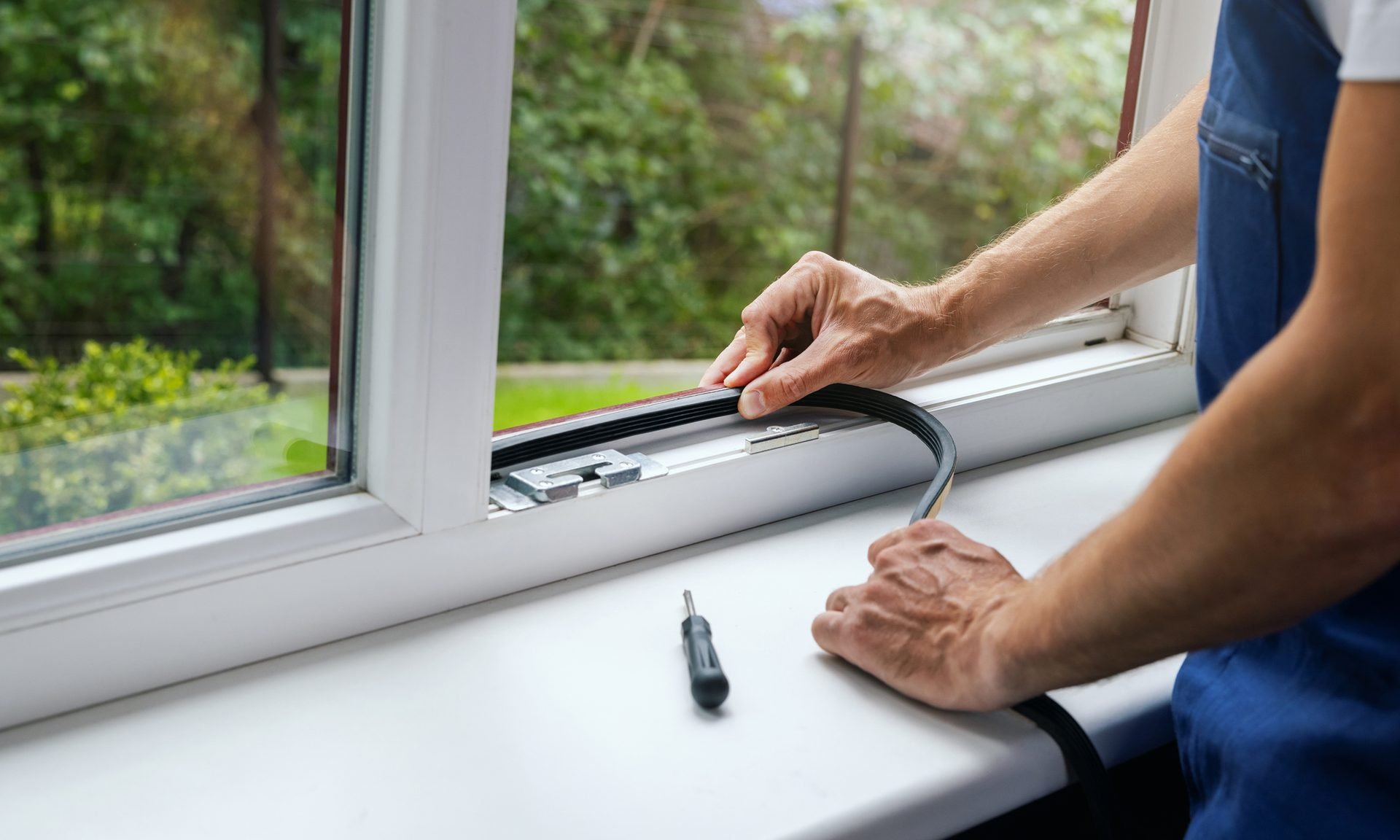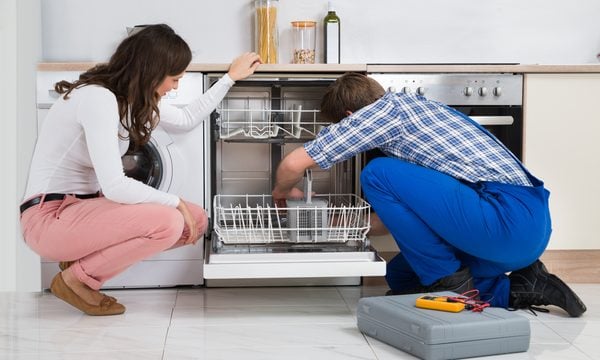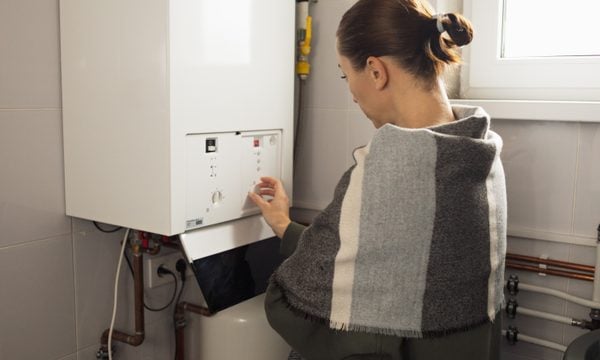Does A Home Warranty Cover Windows?
Home warranties don't cover windows except in special cases, but other types of insurance do.

Some or all of the mortgage lenders featured on our site are advertising partners of NerdWallet, but this does not influence our evaluations, lender star ratings or the order in which lenders are listed on the page. Our opinions are our own. Here is a list of our partners.
Home warranties don’t usually cover windows. Typically, your homeowners insurance covers your windows. Manufacturer warranty and builder's insurance may also cover window repair and replacement.
Home warranty window coverage
Home warranties are designed to cover your home’s systems and appliances, not structural components. In other words, home warranties fill in the gaps to cover the parts of your home that your homeowners insurance doesn’t cover. Because windows, like walls and doors, are structural home components, home warranties don’t generally cover them.
However, some home warranty companies might cover windows under specific add-on or comprehensive plans. Also, in rare cases where window issues threaten a home’s integrity, certain home warranties might cover that repair.
While each company has its own specific policy offerings, home warranties generally cover appliances and systems, such as:
- Refrigerators.
- Washing machines.
- Clothes dryers.
- Air conditioners.
- Heating systems.
- Kitchen appliances.
- Water heaters.
- Electric systems.
- Plumbing systems.
Advertisement
Types of insurance that cover windows
Three main types of insurance may cover your windows, depending on the issue and circumstances. Here’s what to know.
1. Homeowners insurance
The most common way to get coverage for your windows is through homeowners insurance. These policies generally contain dwelling coverage, other structures coverage and liability coverage to protect your windows from a wide range of circumstances that might damage them.
Dwelling coverage is limited to damage to the home itself from specific risks, often called “perils.” These covered perils generally include vandalism, fire, hail, wind and theft.
For example, if your window is broken by a strong gust of wind or smashed by a vandal, the dwelling coverage would pay for the repair, within the coverage limits of the policy and minus any deductible you might owe. If the cost of the window repair is less than the deductible you owe, you’ll have to pay the whole cost.
Other structures coverage for windows covers a damaged window on your shed, detached garage or another building on your property that isn’t the home itself. As with dwelling coverage, if damage happened because of a covered peril — for example, if hail broke through a window on your shed — you’d be reimbursed for the repair, less your deductible.
Liability coverage comes into play if you or a member of your household accidentally damages a window on someone else’s property. If a neighbor breaks a window on your property, their homeowners liability coverage covers the repair, less any deductible arrangement in your policy.
If you or a member of your family breaks your own window — for example, if you accidentally swing a broom handle and shatter the glass — liability coverage won’t apply and you’ll have to pay out-of-pocket.
2. Manufacturer warranty
Manufacturer warranties can cover damages due to product defects or installation mistakes. This coverage may also be called manufacturer insurance or an extended warranty.
Manufacturer coverage can vary widely by amount and length of time. If you’re purchasing new windows, look for a policy that covers both manufacturer defects and faulty installation, extends for 10 years or more and is transferable to the next owner if you sell your house.
Your coverage agreement should include the following issues:
- Damage to screens.
- Separation of any welds in the metal parts of your windows.
- Cracks, fading, chips, blisters, delamination or warping of PVC.
- Clouding or filminess between panes or inside windows.
- Weather-induced breakage.
- Window machinery failure.
3. Builder's insurance
Builder's insurance, also known as a builder's warranty, applies to newly-built homes and remodels . It typically covers permanent parts of the home, including windows, as well as concrete floors, plumbing, electrical systems and HVAC. These policies generally exclude any components or systems still covered by manufacturer warranty or your homeowners insurance.
Frequently Asked Questions
How long will builders insurance cover my windows?
Most components are covered for one year under builders insurance, although some policies may offer up to 10 years of coverage for major structural defects that make the home unsafe.
Do I need both homeowners insurance and a home warranty?
Purchasing a home warranty is not a requirement. You may want a home warranty because it can cover areas your homeowners insurance doesn’t. It may not make sense if you can afford to put money aside in a repair fund.
You’re also not legally required to have homeowners insurance in the United States, unless your home is financed. Most lenders, such as mortgage and home equity loan lenders, require you to purchase homeowners insurance. Having this coverage is generally a good idea, because it can protect you from devastating financial loss in the event of major home damages.
Article sources
NerdWallet writers are subject matter authorities who use primary,
trustworthy sources to inform their work, including peer-reviewed
studies, government websites, academic research and interviews with
industry experts. All content is fact-checked for accuracy, timeliness
and relevance. You can learn more about NerdWallet's high
standards for journalism by reading our
editorial guidelines.
- 1. USDA.gov. Builder's Warranty Form. Accessed Aug 8, 2025.
More like this
Related articles
AD
50% OFF Select Plans — Limited Time Only
Call American Home Shield
REDEEM NOW
on American Home Shield's website
AD
50% OFF Select Plans — Limited Time Only
- Comprehensive Coverage from Just $29.99/Month;
- Trusted by Over 2 Million Members for 50+ Years;
- No Records or Home Inspections Required.
Call American Home Shield

REDEEM NOW
on American Home Shield's website
AD
Protect Your Home for as little as $1 / Day
Call Select Home Warranty
REDEEM NOW
on Select Home Warranty's website
AD
Protect Your Home for as little as $1 / Day
- Great Home Warranty Protection with $150 off + 2 Months Free + Free Roof Coverage;
- Join the Select Benefits Program and Save up to 75% on Common Everyday purchases.
Call Select Home Warranty

REDEEM NOW
on Select Home Warranty's website







